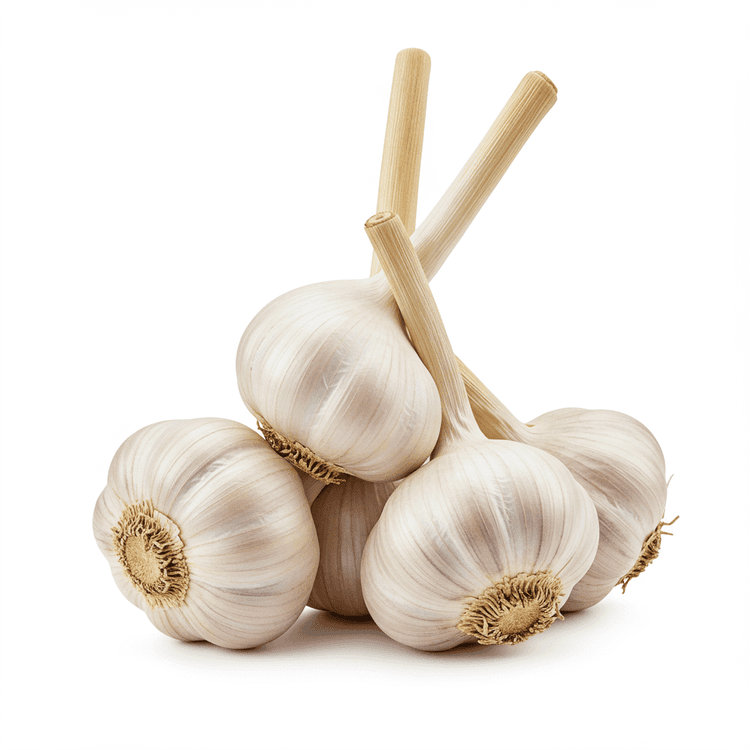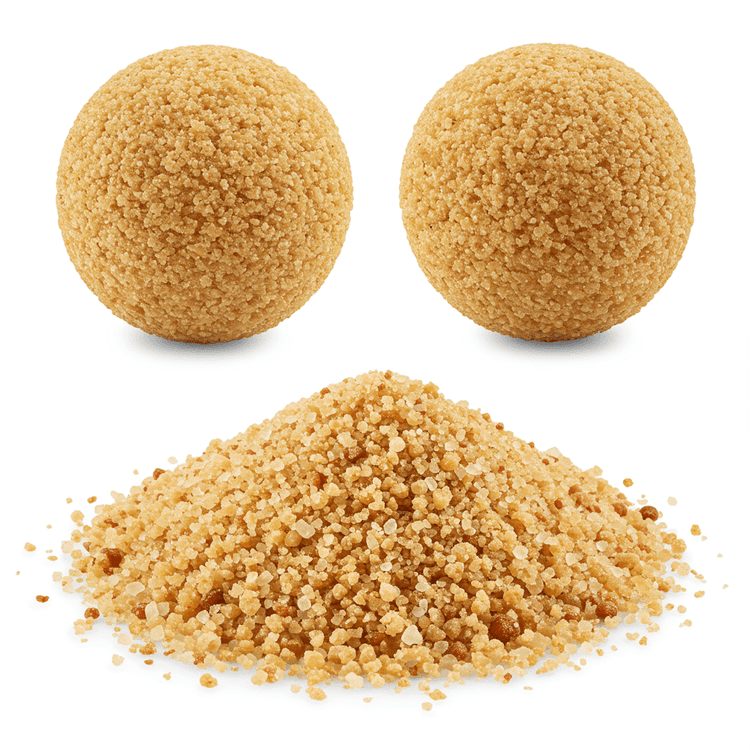
Garlic
Garlic, a culinary staple, is known for its pungent and robust flavor. It consists of a bulb composed of multiple cloves, each encased in a papery skin. Fresh garlic cloves are firm, white, and offer a distinct aroma that intensifies when crushed or cooked. Garlic adds depth and complexity to a wide range of dishes and is a key ingredient for adding savory flavor to meals.
Common Uses
- Garlic is frequently minced or crushed and sautéed in oil or butter as a flavorful base for sauces, soups, and stews. It imparts a savory depth and aroma to the dish.
- Roasted whole garlic bulbs become sweet and creamy, perfect for spreading on bread or incorporating into dips and purees for a milder garlic flavor.
- Garlic can be added to marinades for meats, poultry, and seafood, tenderizing the protein and infusing it with its characteristic flavor.
- Garlic powder or granules are commonly used as a convenient seasoning in dry rubs, spice blends, and as an all-purpose flavoring agent in various recipes.
- Pickled garlic cloves offer a tangy and slightly sweet flavor, making them a delicious addition to charcuterie boards or as a flavorful condiment.
- Garlic scapes, the curly flower stalks of the garlic plant, can be grilled, stir-fried, or pureed into pesto for a milder, garlicky flavor.
Nutrition (per serving)
Nutrition (per serving)
Calories
4.5kcal (0.22%)
Protein
0.2g (0.38%)
Carbs
1.0g (0.36%)
Sugars
0.0g (0.06%)
Healthy Fat
0.0g
Unhealthy Fat
0.0g
% Daily Value based on a 2000 calorie diet
Nutrition (per serving)
Calories
4.5kcal (0.22%)
Protein
0.2g (0.38%)
Carbs
1.0g (0.36%)
Sugars
0.0g (0.06%)
Healthy Fat
0.0g
Unhealthy Fat
0.0g
% Daily Value based on a 2000 calorie diet
Health Benefits
- Boosts immune system function with its allicin content.
- Supports heart health by helping to maintain healthy blood pressure and cholesterol levels.
- Possesses anti-inflammatory properties that may reduce the risk of chronic diseases.
- May help to improve bone health by increasing estrogen levels in women.
- Rich in antioxidants that protect cells from damage.
- Could help improve cognitive function and reduce the risk of neurodegenerative diseases.
Substitutes
Chefadora AI is here.
Experience smarter, stress-free cooking.
Storage Tips
To maximize freshness, store garlic bulbs in a cool, dry, and dark place with good ventilation, like a pantry or cupboard. Avoid storing garlic in the refrigerator, as this can cause it to sprout or become moldy. Whole bulbs can last for several months when stored properly. Once cloves are separated from the bulb, use them within a week for best flavor. Peeled garlic cloves can be stored in the refrigerator submerged in olive oil for up to 2 weeks; however, be aware of the botulism risk associated with storing garlic in oil at room temperature.
Marnirni-apinthi Building, Lot Fourteen,
North Terrace, Adelaide, South Australia, 5000
Australia

